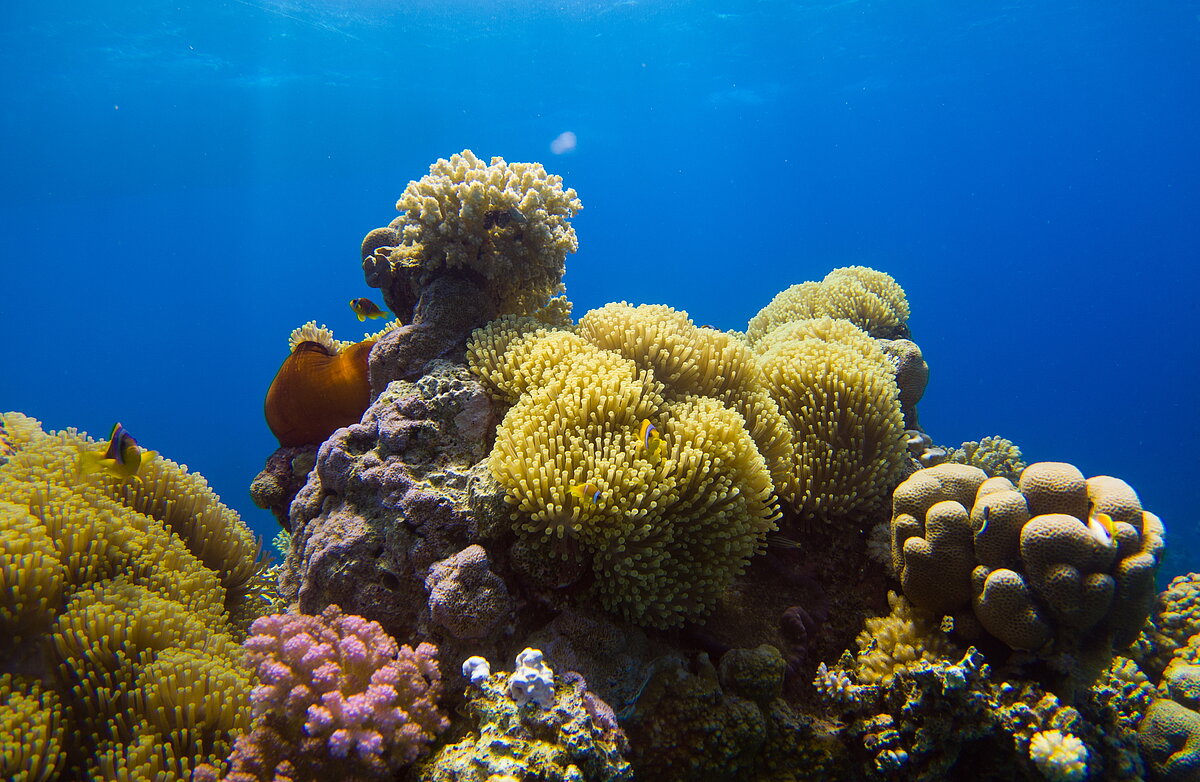
Ever wondered what secrets lie beneath the ocean's surface, in those vibrant coral ecosystems? Well, you're in for a treat! Coral ecosystems are not just underwater eye candy; they're bustling metropolises of marine life and unsung heroes in the fight against climate change. From their role as marine biodiversity hotspots to their contribution to coastal protection and livelihoods for millions of people, these ecosystems pack a punch in the ecological and economic ring. But wait, there's more! Did you know that corals are not plants but colonies of tiny living creatures? Buckle up as we dive into 12 fascinating facts about coral ecosystems that will leave you in awe and maybe a bit more in love with our blue planet.
Key Takeaways:
- Coral ecosystems are bustling underwater cities, home to a quarter of all marine species. They're like the rainforests of the sea, vital for marine life and human societies.
- Climate change, pollution, and overfishing threaten coral reefs. Conservation efforts, including marine protected areas and coral restoration projects, are crucial for their survival.
Understanding Coral Ecosystems
Coral ecosystems, vibrant and teeming with life, serve as underwater cities where countless species coexist. These ecosystems are not just beautiful underwater landscapes but are crucial for marine life and human societies around the globe.
-
Corals are not plants but living organisms. They are colonies of tiny animals known as polyps. These small creatures work together, creating the stunning coral structures we admire.
-
Coral reefs support an astonishing 25% of all marine species, despite covering less than 1% of the ocean floor. This biodiversity makes them akin to the rainforests of the sea.
The Importance of Coral Reefs
Coral reefs play a pivotal role in the ocean's health and in human livelihoods. Their importance extends far beyond their beauty.
-
Reefs act as natural barriers, protecting coastlines from the full force of storms and erosion. This defense mechanism saves billions in potential damage and protects lives.
-
Economically, coral reefs are invaluable. They support fisheries and tourism industries, providing food and jobs for millions of people worldwide.
Threats to Coral Ecosystems
Despite their importance, coral ecosystems face numerous threats that jeopardize their survival and the benefits they offer.
-
Climate change is the most significant threat to coral reefs. Rising sea temperatures can cause coral bleaching, a stress response where corals expel the algae living in their tissues, turning them white and jeopardizing their health.
-
Pollution, overfishing, and destructive fishing practices also pose serious risks to coral ecosystems. These activities can damage the delicate coral structures and disrupt the balance of marine life.
Conservation Efforts
Efforts to protect and restore coral ecosystems are underway globally, highlighting the recognition of their value and the urgent need for action.
-
Marine protected areas (MPAs) have been established in various parts of the world to safeguard coral reefs and their inhabitants. These areas restrict human activities, allowing ecosystems to recover and thrive.
-
Coral restoration projects involve growing corals in nurseries and then transplanting them back into damaged reefs. This hands-on approach has shown promise in reviving degraded coral ecosystems.
The Role of Technology in Coral Conservation
Innovative technologies are being deployed to monitor, study, and protect coral reefs more effectively.
-
Drones and satellite imagery are used to map and monitor coral reefs, providing valuable data on their health and the impacts of human activities.
-
Artificial intelligence (AI) helps scientists predict coral bleaching events and other threats, enabling timely interventions to protect vulnerable reefs.
The Future of Coral Ecosystems
The future of coral ecosystems hinges on our actions today. Addressing the threats they face and supporting conservation efforts are critical steps in ensuring their survival.
-
Global efforts to combat climate change, such as reducing greenhouse gas emissions, are vital for protecting coral reefs from the devastating effects of warming oceans.
-
Public awareness and education about the importance of coral ecosystems and the threats they face can inspire more people to take action in their conservation.
A Final Glimpse into Coral Wonders
Diving into the world of coral ecosystems reveals a vibrant tapestry of life, resilience, and interconnectedness. These underwater marvels are not just beautiful; they're crucial for marine life and human societies alike. From acting as natural barriers protecting coastlines to supporting diverse marine species, corals play a pivotal role in the ocean's health. Yet, they face threats from climate change, pollution, and overfishing. Understanding and appreciating the value of coral ecosystems is the first step toward their conservation. By taking action, whether through supporting sustainable practices or raising awareness, everyone can contribute to preserving these underwater treasures for future generations. Let's cherish and protect these colorful communities, ensuring they continue to thrive in the vast blue oceans.
Frequently Asked Questions
Was this page helpful?
Our commitment to delivering trustworthy and engaging content is at the heart of what we do. Each fact on our site is contributed by real users like you, bringing a wealth of diverse insights and information. To ensure the highest standards of accuracy and reliability, our dedicated editors meticulously review each submission. This process guarantees that the facts we share are not only fascinating but also credible. Trust in our commitment to quality and authenticity as you explore and learn with us.


